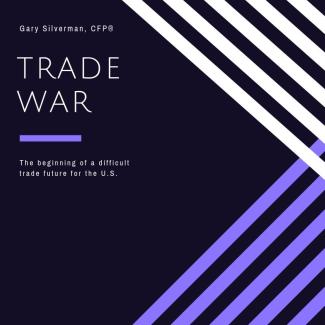
Trade War Will Land U.S. in a Bad Position
Trade wars can have interesting effects on business. While short-term disruptions tend to get all the press, it is the long-term that ends up being a bigger deal. Of course, it is likely that a long-term change is exactly what one or both warring factions want—hence the war—but it is the ancillary long-term effects I want to talk about today. But first a background.
In our recent trade war, the term “strategic interest” has been bandied around. What is that exactly? Think about something like oil. While a lot of work is being done to eliminate the need for oil, that need is very real, very present, and very large. The United States wants to make sure that in case of international turbulence, we are able to secure enough oil to wage war offensively or defensively and for other uses we consider necessary.
In World War II, part of our success was the result of our ability to build tanks, ships, and planes faster than they were being destroyed. Even before that, we understood the importance of manufacturing, shipyards, and the like to allow us to do it then and in the future.
So, our government will do what it can to ensure the survival of particular industries…or at least we should. While we certainly can’t crank out the number of ships we would need in case of a war at this moment, we do maintain facilities that can be expanded and (hopefully) have enough people with the skills and knowledge who can train others should the need arise.
While not a war need, imagine if a country withheld supplies of parts that were necessary for companies like Apple, Microsoft, Oracle, and Intel to be able to survive. We’d get pretty upset. One thing we might do is make sure we don’t have to rely on that country for those parts anymore.
Now consider our little spat with China and Huawei. Last I heard we are now allowing some of our companies to supply Huawei—for a limited time. But the damage is already done. Whether or not China and Huawei deserved it, they don’t really care. What China cares about is that its major manufacturers (Huawei is a rather big deal) can’t be stopped by us. What Huawei cares about is survival.
That’s why while things now may be settling down, things in the future will be quite different. Yes, Huawei needs us to build their phones and other electronics. Now. But it is no secret that they are both working with non-US companies to secure other supply sources, and China is working to get their chip-making and other industries geared up to become in-country sources.
This will take years to play out, but the game has started.
Gary Silverman, CFP® is the founder of Personal Money Planning, LLC, a Wichita Falls retirement planning and investment management firm and author of Real World Investing.

